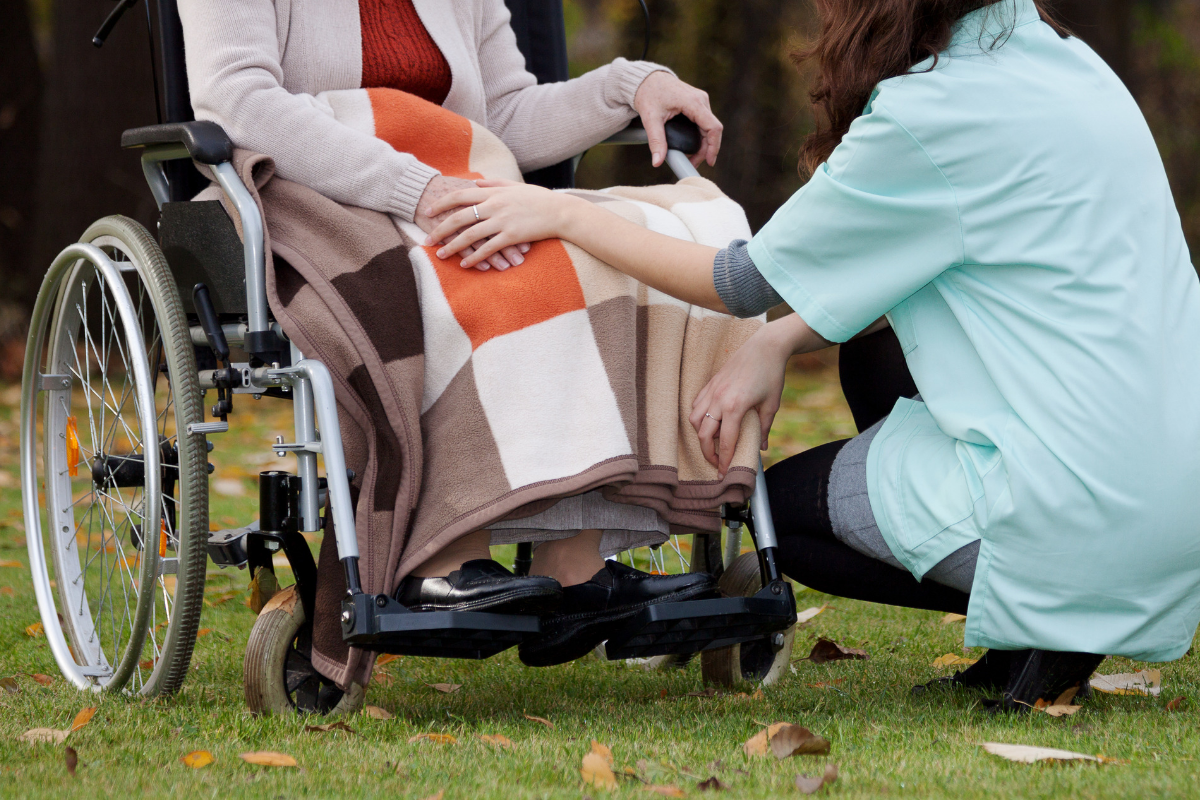What is Trauma-Informed Care?

Those of us working in end-of-life care have become very well versed in addressing and providing support for the trauma that Veterans have experienced during their time in the service. But how often do we think about the trauma that other patients have experienced in their lives?
An estimated 70% of adults in the United States have experienced trauma at some point. Some of the most common sources of trauma include assault, rape, domestic violence, natural disasters, severe illness or injury, witnessing an act of violence, and the death of a loved one.
Trauma-informed care allows us to address our patients needs and understand their behavior.
Signs & Symptoms of Trauma at End of Life
Even when a traumatic event occurred many years in the past, the effects can often still be seen at end of life. During this time, individuals can relive the experience, deal with anxiety or nightmares, or experience regret for their role in the experience. They may also experience renewed anger and resentment about the role others played in the event. Intense medical intervention including sedation, restraints, and intubation can also cause new trauma or revive feeling from a past trauma.
Signs of trauma include:
- Avoiding thoughts or feelings related to the traumatic event
- Intrusive memories or nightmares
- Hyper-awareness or exaggerated startled responses
- Difficulty concentrating
- Difficulty sleeping
- Irritable or aggressive behavior
- Risky or destructive behavior
- Substance abuse
- Interpersonal problems
- Behavioral problems
Trauma-informed care begins by asking “what happened to you?” – not “what’s wrong with you?”

What Is Trauma-Informed Care?
According to the U.S. Department of Health & Human Services Substance Abuse and Mental Health Services Administration (SAMHSA), a trauma-informed organization:
- Realizes the widespread impact of trauma and understands potential paths for recovery.
- Recognizes the signs and symptoms of trauma in clients, families, staff, and others involved with the system.
- Responds by fully integrating knowledge about trauma into policies, procedures, and practices.
- Seeks to actively resist re-traumatization.
- Recognizes the impact trauma plays on the lives of patients and their families and will seek to determine if their behavior is related to that trauma.
Providing Trauma-Informed Care at End of Life
Know that patients are often reluctant to discuss their past experience out of guilt, shame, or fear of stirring up old memories. Assure them that sharing their experience will allow you to provide them with the best care.
When taking a patient’s history, don’t just focus on recent history. Ask patients if there is anything in their history that makes care or a physical examination difficult or if there is anything you can do to make providing care and support easier for the patient.
Begin to provide the support your patients need by creating a safe space. Keep the noise levels low, avoid have upsetting news programs or violent shows on the television, and ask family members to have difficult conversation out of the patient’s earshot.
When treating patients, we should take care to respect their boundaries while still providing the personal and medical care that is needed. The best way to do this is to explain what you will be doing before you do it. Tell patients that you need to lift the bedcovers or that you need to open a gown to provide care.
Let the patient know before you touch them and explain why you need to touch personal areas for bathing, wound treatment, or inserting suppositories. When asking sensitive questions about a patient’s sexual history, explain that it can help you determine what tests or support is needed.
Recognizing the prevalence of trauma at end of life allows you to give your patient an opportunity for support, healing, and peace at end of life – a goal that we all share.
Crossroads Hospice & Palliative Care provides support to patients experiencing serious and terminal illness. To learn more about what hospice care is, please call 1-888-564-3405.
If you found this information helpful, please share it with your network and community.
Copyright © 2019 Crossroads Hospice & Palliative Care. All rights reserved.




